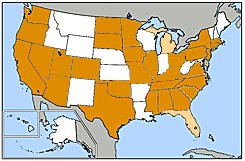Redmond, OR

Mid-80’s in central Oregon today! Feels like summer! (Snow a few day ago, though. Felt like winter.)
What cracks me up is when people look at their thermostat and say “yep, global warming!” Or even better, when it snows: “Those liberal scientists don’t know what they’re talking about! Global warming?!? It’s snowing in April!”
Of course, both people are wrong. They are not describing global climate change (which is, by the way, a much more accurate description of the phenomenon than global warming.) They’re describing local weather change. Perhaps their current weather is a result of larger-scale and longer-term fluctuations in the climate, but the data set they are dealing with is miniscule compared to the decades worth of data covering nearly the entire earth that climate scientists use in their models.
Anecdotal evidence and personal stories are powerful and can be very persuasive, but must be well balanced with a bigger-picture view. When we view education through the lens of our individual classroom, school or district, we are only seeing a tiny fraction of the picture. It’s an important part of the picture for us, but it’s not even close to the whole thing.
This year in my travels, I’ve been able to experience how big and how complicated that big picture is. And like weather and the climate, the big picture influences what happens at the local level.
We can’t change the weather, and we know that some of the changes we are experiencing are part of natural cycles that we can only respond to. But our collective actions certainly can change the climate. It’s a big, complicated system, but we all must do our part.









No comments:
Post a Comment
Feel free to question, disagree, challenge, or make suggestions! I'm a big boy. I can take it.